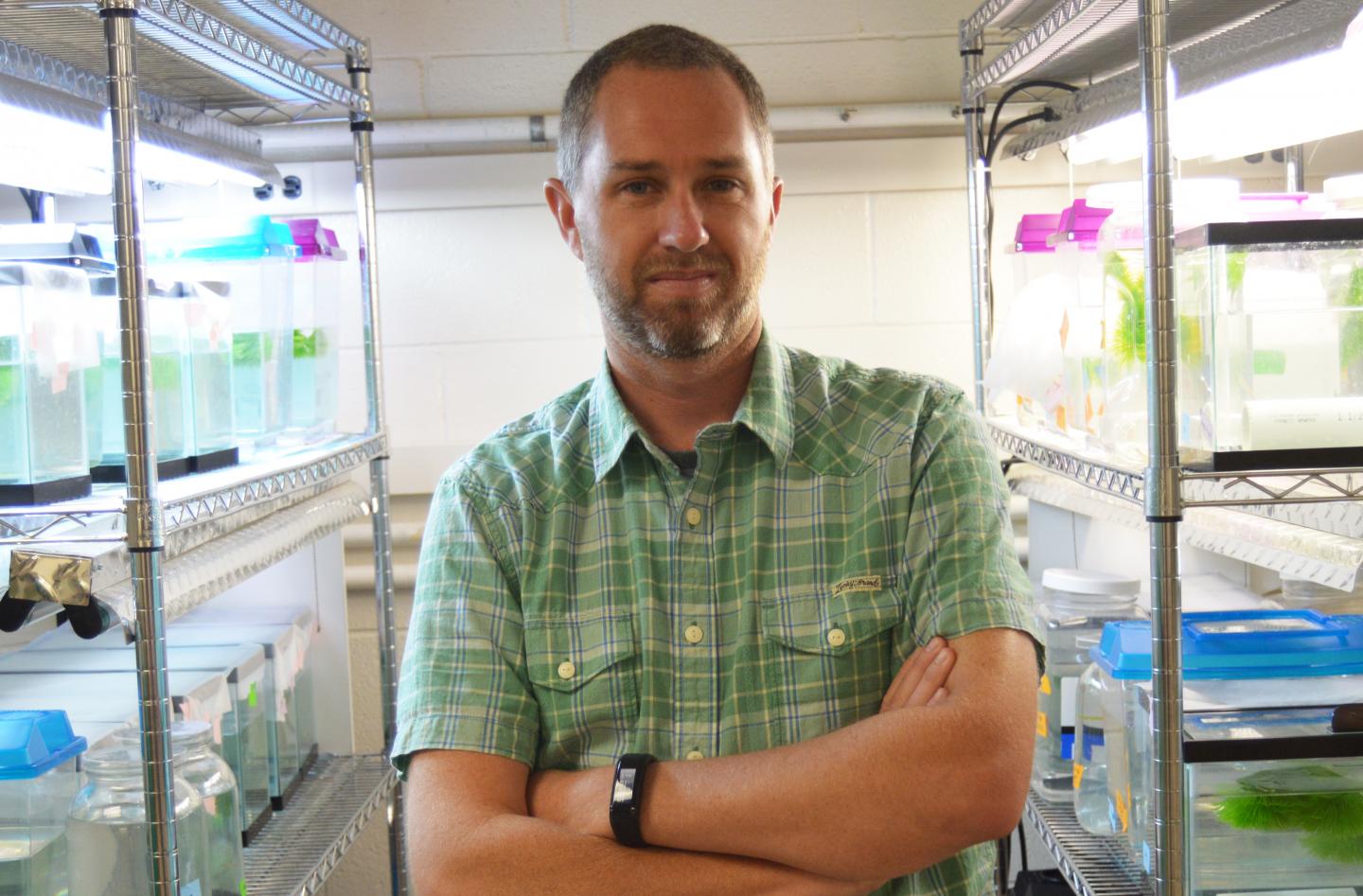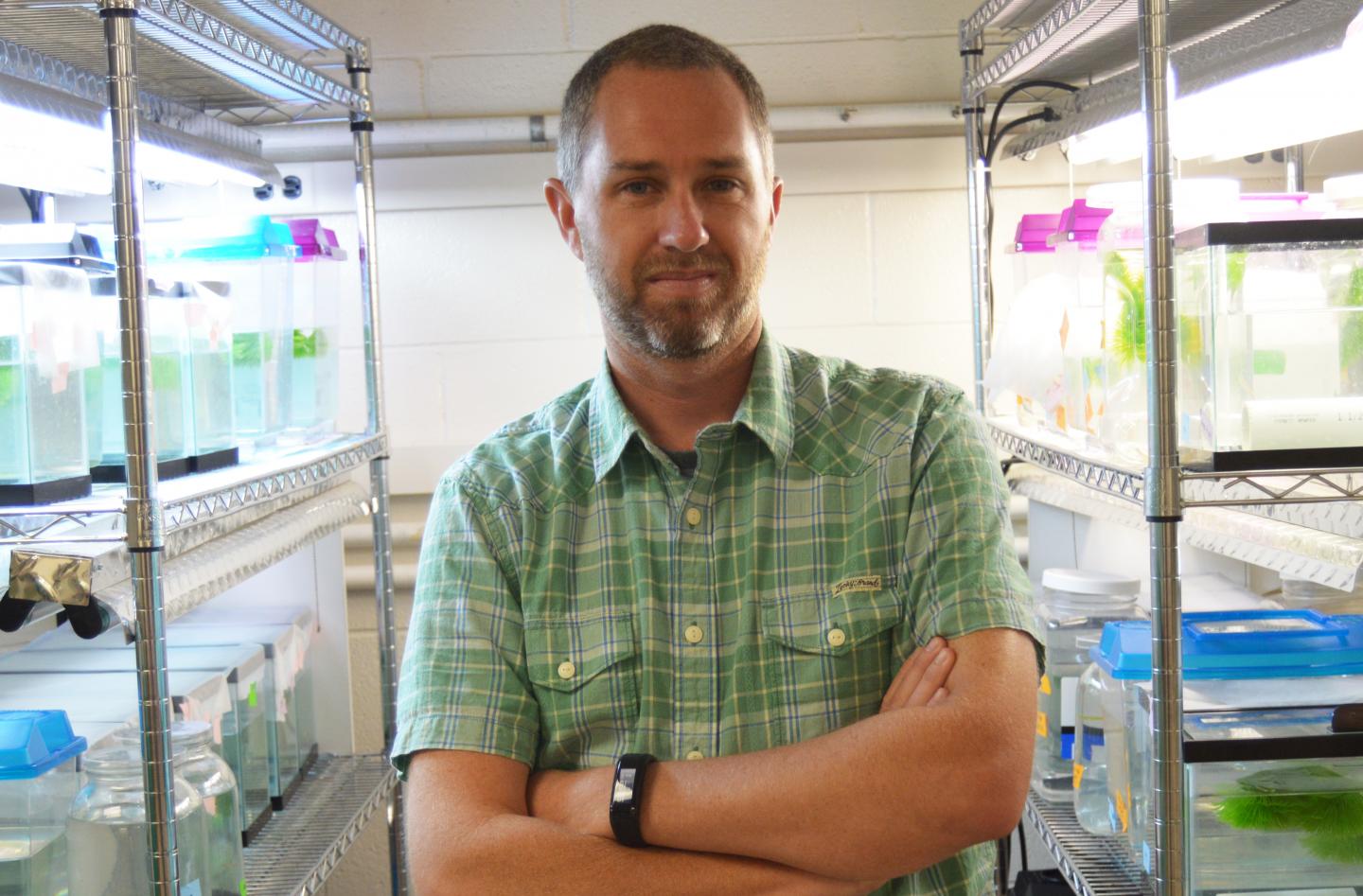
Credit: UTA
A biologist at The University of Texas at Arlington who studies ecology and evolutionary biology is the recipient of a prestigious career development grant from the National Science Foundation.
Matthew Walsh, an assistant professor of biology, has been awarded a five-year, $600,000 grant from the NSF's Faculty Early Career Development Program. His project is titled "CAREER: Does behavioral plasticity promote or constrain adaptation? A test using resurrection," and will address a long-standing question in evolutionary biology.
"We have known for at least 100 years that organisms are sensitive to changes in environmental conditions and that they will often alter the expression of their traits when conditions change," he said. "Scientists have long speculated that this 'plasticity' plays a key role in ultimate evolutionary responses, but how it does so is not clear. The challenge in answering this question is that you need to observe evolutionary changes as they occur."
The project will help answer the question by taking advantage of a unique feature of zooplankton biology, Walsh explained. Many species of zooplankton produce resting eggs when conditions deteriorate. A resting egg is an egg that undergoes a period of dormancy during which it is resistant to adverse conditions. These resting eggs sink to the bottom of lakes and accumulate. More importantly, they remain viable for decades or even longer.
Walsh's research will focus on a system that experienced a recent change in environmental conditions. Lakes in Wisconsin were recently invaded by a dominant invertebrate predator, the spiny water flea or Bythotrephes longimanus. Bythotrephes has decimated populations of Daphnia, a tiny, shrimp-like crustacean also known as the water flea, as its diet consists mostly of Daphnia zooplankton. In previous research, Walsh provided evidence that Bythotrephes drives evolution in Daphnia.
In his CAREER project, Walsh and students in his laboratory will "resurrect" historic resting eggs of Daphnia retrieved from Wisconsin lakes to observe this process as it transpired in nature. Successful resurrection of species is a relatively recent occurrence, having been developed within the past two decades.
Comparisons across contemporary populations show that invasion by spiny water fleas is associated with rapid evolution of Daphnia prey, Walsh noted. Pairing "resurrection" experiments with experimental evolution in the lab will help determine if plasticity promotes or impedes adaptation. "This work is important because it will allow us to observe evolutionary processes in real time and thus better understand how organisms adapt to any changes in environmental conditions, such as rising temperatures, habitat loss, or species invasions," he said.
Allowing him and his students to track the interplay between environmentally-induced trait responses and evolutionary changes in "real time" will provide novel insights into how organisms adapt to a change in the environment, including a test of the long-standing hypothesis regarding the role of behavior in evolution, the 'behavior evolves first' hypothesis, Walsh said.
College of Science Dean Morteza Khaledi said Walsh's project will help further strengthen the University's Strategic Plan 2020: Bold Solutions | Global Impact, specifically in the area of global environmental impact, one of the plan's core themes.
"Congratulations to Dr. Walsh on this tremendous honor," Khaledi said. "He is a wonderful example of the young faculty we have in the College of Science who are doing groundbreaking research while also providing innovative teaching in the classroom. It's very gratifying to see his efforts being recognized and rewarded with this prestigious award."
Walsh, who plans to begin collecting specimens from Wisconsin lakes for the study this summer, said he was surprised to learn he was receiving the CAREER award because it was his first time to submit for the grant. Competition for the awards is great and few first-time submissions are accepted.
The CAREER award requires projects to have both research and teaching components, and Walsh's proposal combines research with an educational plan that will utilize zooplankton as a model to engage students with inquiry-based curricula and research-based courses.
CAREER grants are the NSF's most prestigious awards in support of early-career faculty who have the potential to serve as academic role models in research and education and to lead advances in the mission of their department or organization. Activities pursued by early-career faculty should build a firm foundation for a lifetime of leadership in integrating education and research.
Walsh received an M.S. in Marine and Atmospheric Sciences from Stony Brook University in 2003 and a Ph.D. in Evolution, Ecology, and Organismal Biology from the University of California at Riverside in 2009. He worked as a postdoctoral research fellow at Yale University from 2009-12 before coming to UTA in 2012. His research bridges the gap between community/ecosystem ecology and evolutionary biology to explore the reciprocity between ecological and evolutionary forces in natural populations. It addresses questions of broad ecological and evolutionary interest
###
Media Contact
Louisa Kellie
[email protected]
817-524-8926
@utarlington
http://www.uta.edu
Original Source
http://www.uta.edu/news/releases/2017/07/Matthew%20Walsh%20Career%20Grant.php





